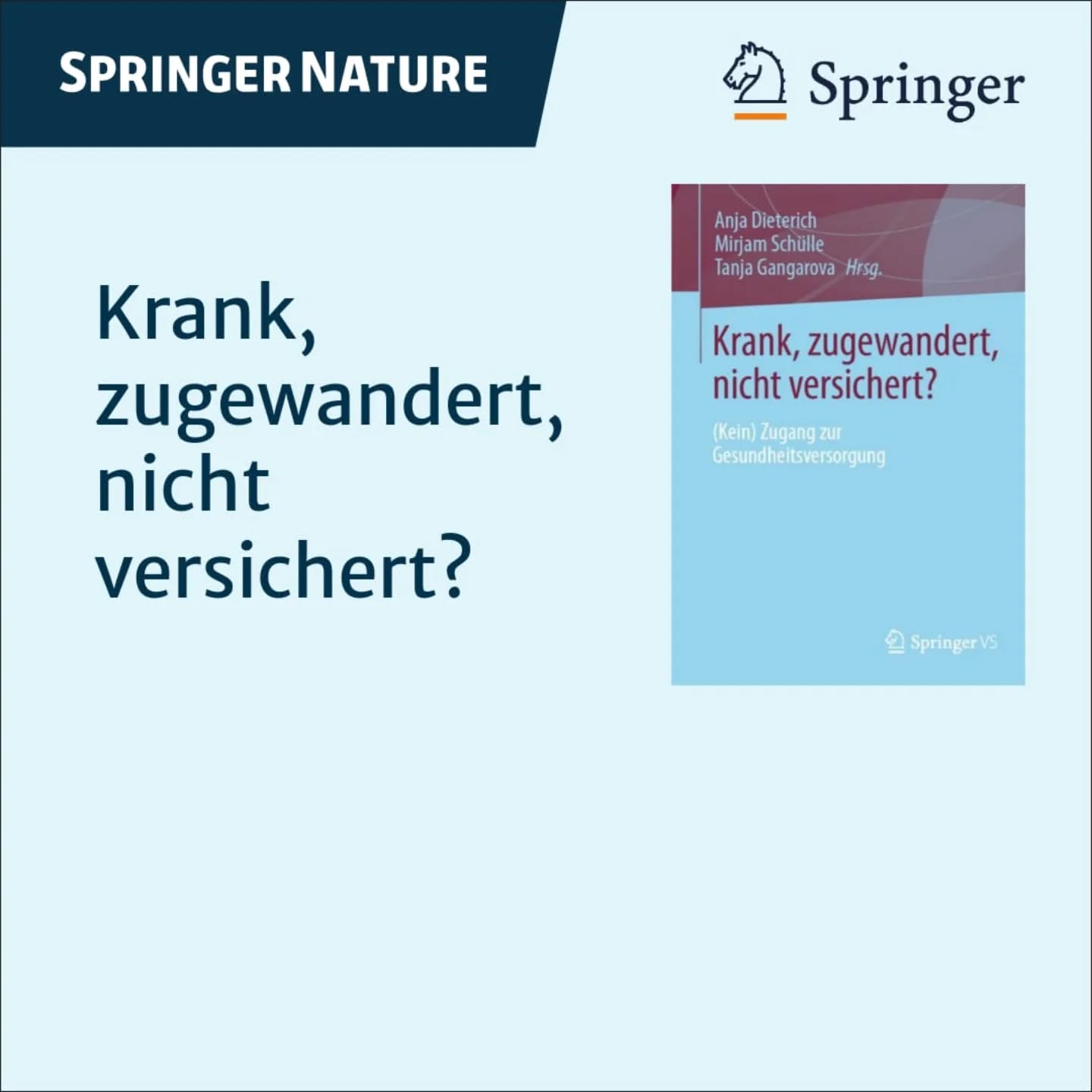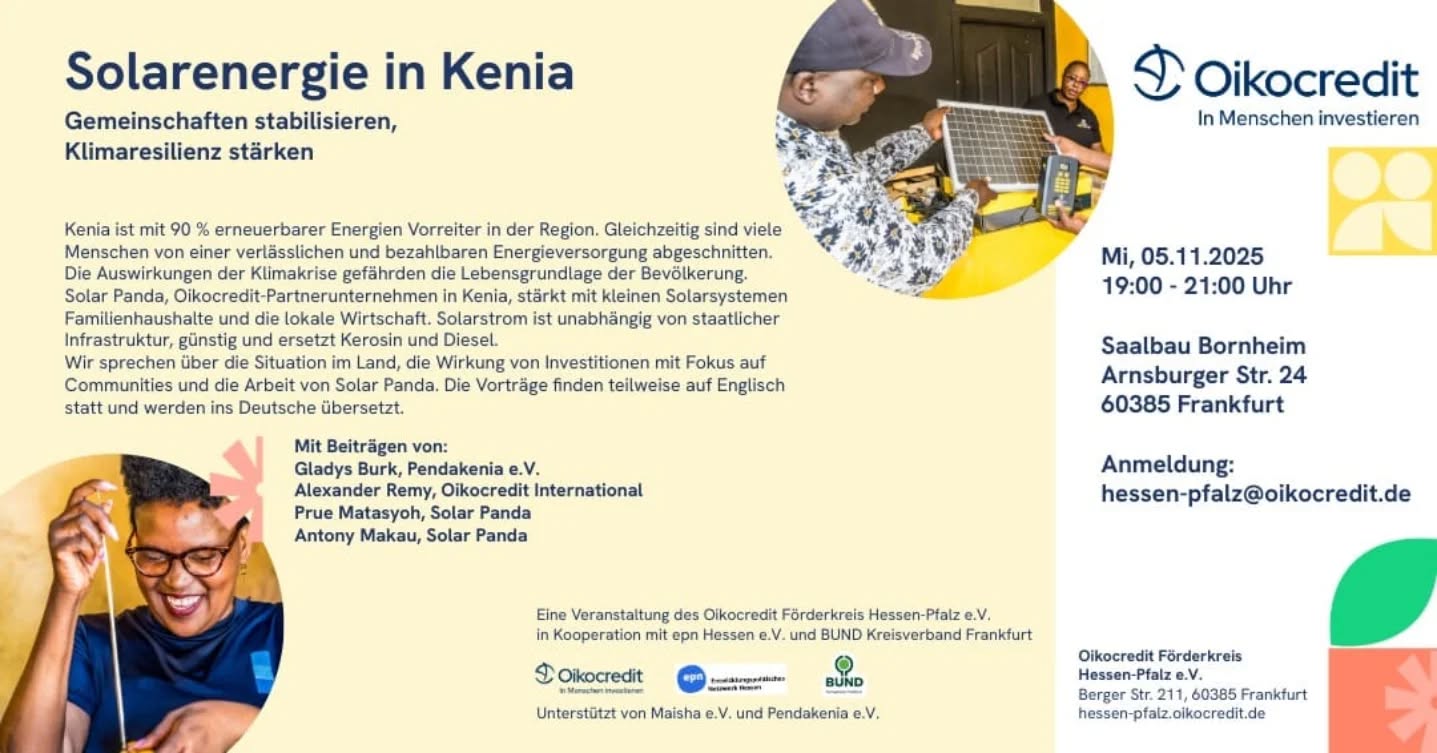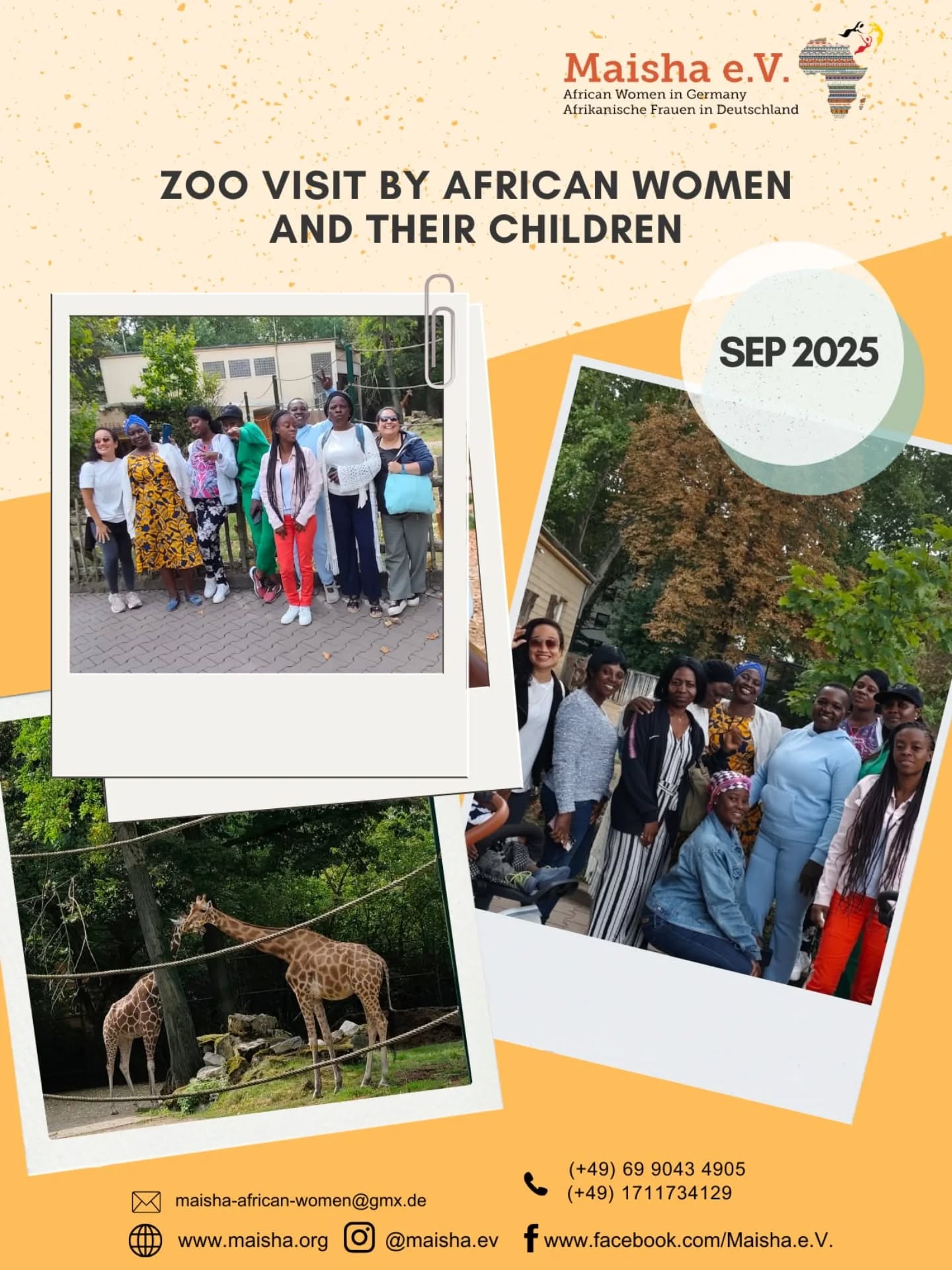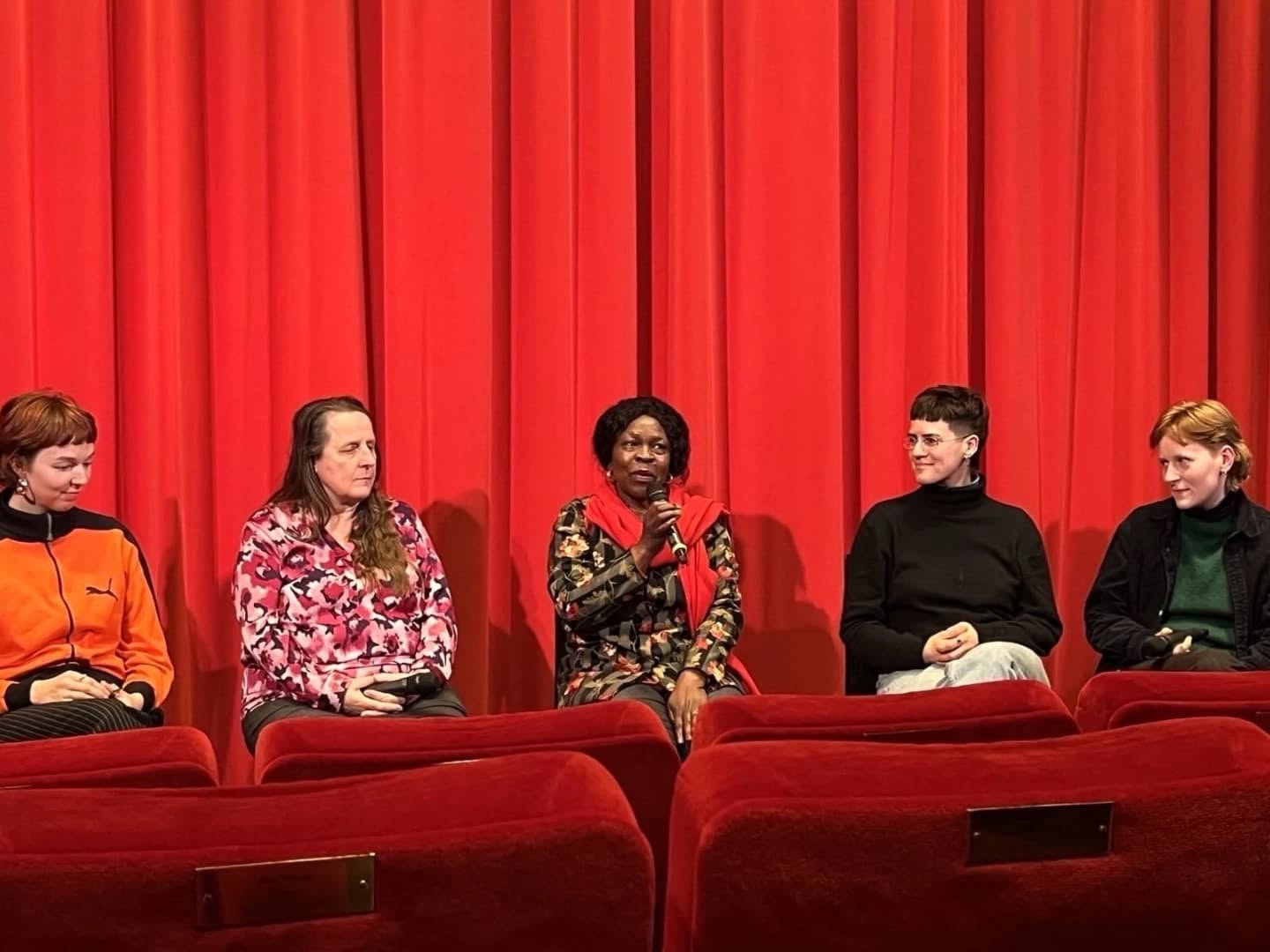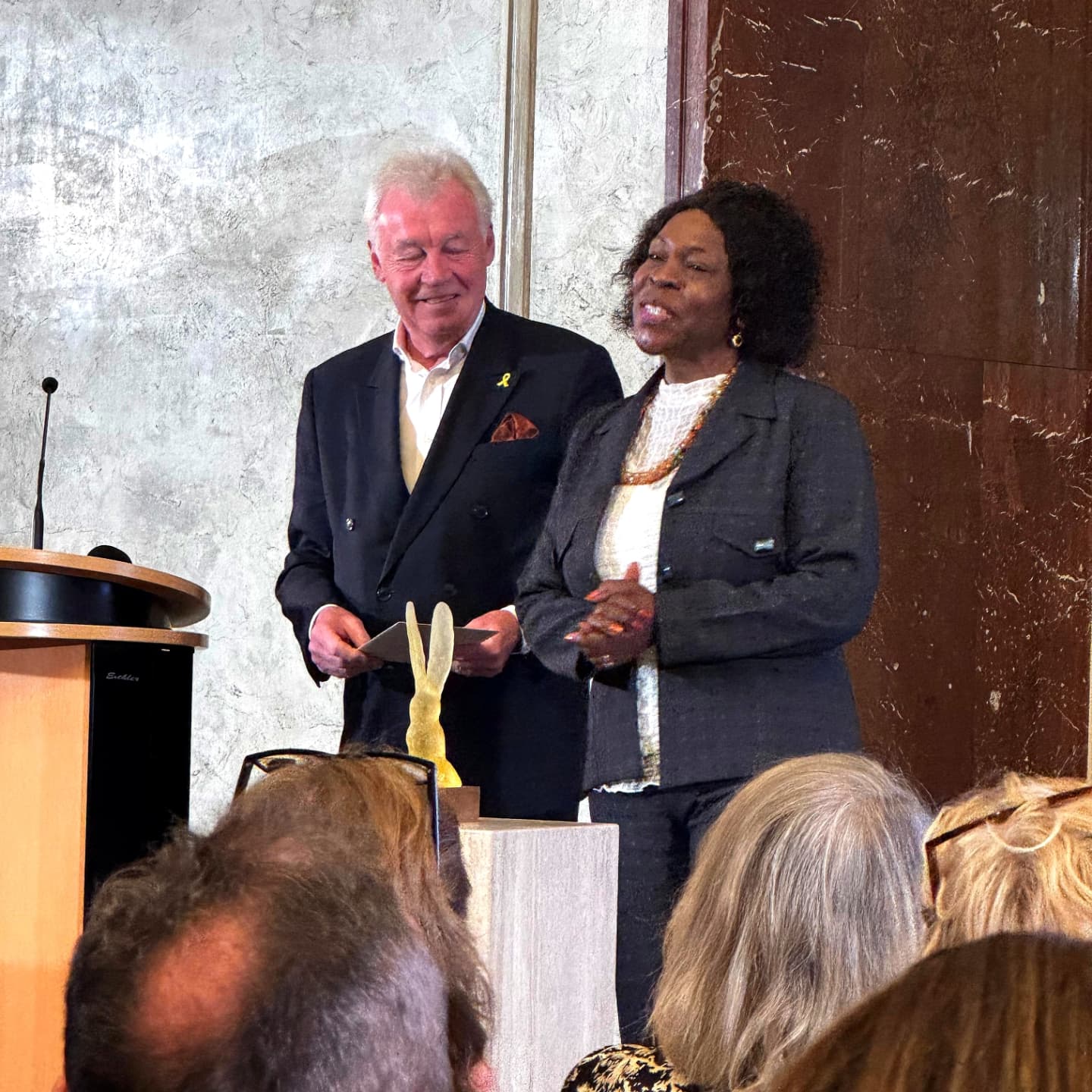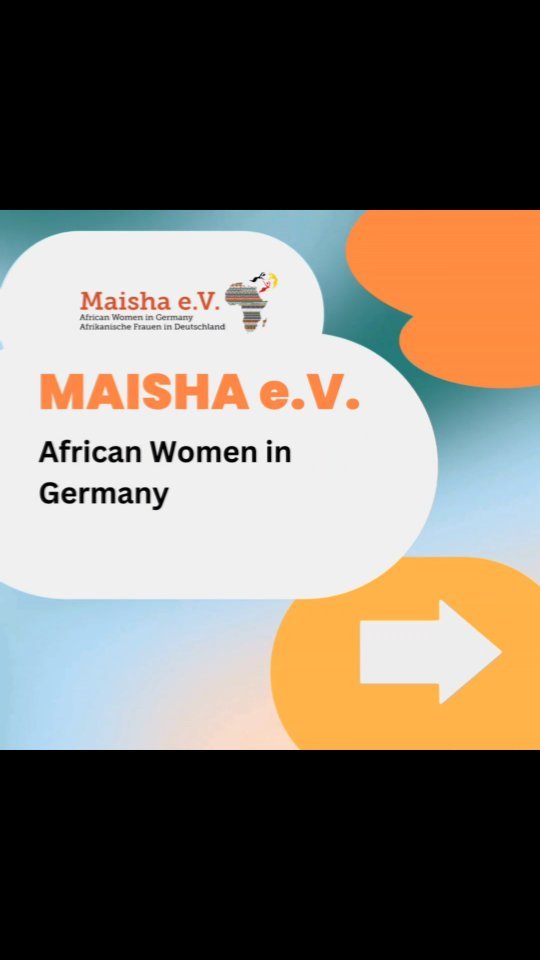
Maisha eV
Association for migrants in Germany
Maisha was founded in 1996 as a non-profit, registered association for African migrants. Its aim is to improve the living conditions of the target group and promote their integration into German society. Those involved support each other in crisis situations and in dealing with German authorities and institutions.

OFFICE - OPENING HOURS
We provide support with questions about integration, German courses, entrepreneurship, asylum, health promotion, education and family problems.
Open consultation with Virginia Wangare Greiner and Maisha Team
Mondays 1 p.m. to 5 p.m.
Tuesdays 11 a.m. to 5 p.m.
Wednesdays 11 a.m. to 5 p.m.
Closed on Thursdays
Fridays 11 a.m. - 5 p.m.
Neue Kräme 32, Frankfurt am Main
HUMANITARIAN CONSULTATION WITH HEALTH DEPARTMENT FRANKFURT AM MAIN
Anonymous medical services for people without health insurance. Our offer is for free and if wanted anonymous. All doctors and advisors are subject to confidentiality.

MAISHA EV PROJECTS
The organisation Maisha e.V. organizes around Frankfurt seminars, workshops and conferences on the subjects of Education,Integration- and Gender, refering to psychosocial and health topics; for example in regards to FGM. Maisha has a wide range of services and campaigns and is active at local, national and European and international levels.









ABOUT MAISHA e.V.
ESTABLISHMENT
Due to the increasing need for advice and consultation of African women and the consistent growing private counselling needs, the non- profit organisation for African women in Germany Maisha e.V. was registered by Virginia Wangare Greiner.
There were seven female founders, three from Kenya and 4 from Germany.1996 was the registration of the non-profit organisation at Frankfurt’s district court and accepted by Finanzamt Frankfurt.
The counseling of African women in need was taken by Virginia Wangare Greiner under the sponsorship of Agisra e.V., for which she also headed the African department. In Agisra’s offices the first consultations for African women were established.
AFRICAN DIASPORA IN EUROPE
Maisha e.V. has over the years developed its anti-racism and discrimination stance and has worked in this regard with the URBAN RURAL MISSION (WCC-URM) Europe before that department was defunded. Campaigns, such as the “Racial Justice Sunday” took place up to 2011. In 1999 Virginia Wangare Greiner received the prize “Youth on the Move” in California, USA.
Since 1999 she has been engaged as a trainer for intercultural competence for the police of Germany's state, Hessen.
In 2000 the African Diaspora in Europe was established by URM and Maisha e.V. Virginia Wangare Greiner represents the African non-profit organisation at regional, national and international conferences and lectures about discrimination, racism and integration, FGM/C, undocumented migrants and Violence against Women, among other things.
HUMANITARIAN COUNSEL
In cooperation with the Health department of Frankfurt, the Social welfare office, the office for Cultural affairs and the women's department of Frankfurt the Africa consultation hour was initiated in 2001. The consultation hour was then a health promotion for Africans in Frankfurt City and includes prevention offers and an opportunity for Africans without health insurance to be treated and given medication. This service is a major focus of the African association, which is discussed in more detail in this chapter. Over the years several new projects have been built up and developed on the basis of this service by the Health Authority of Frankfurt. These projects help undocumented migrants to access health.
FEDERAL CROSS OF MERIT
Virginia Wangare Greiner has been the Chairwoman of ADE since 2002
For her work in Germany she received in 2003 the first Prize of Integration in Frankfurt/Main.
Since 2001, she has been the Social worker of Humanitarian Sprechstunde at the Health Department of the City of Frankfurt. Since 2005 she has been the CEO of Maisha e.V. and its Social worker for African families and undocumented migrants.
In 2006, Virginia Wangare Greiner was the first person with a foreign nationality to receive Germany’s Federal Cross of Merit.
FEDERAL ADVISORY COUNCIL FOR INTEGRATION
In 2007 Virginia Wangare Greiner became the first chairwoman of the European Network of Migrant Women. She was re-elected and served this network until 2014. In 2011 she became a member of the Federal advisory council for Integration.
FOREIGNERS ADVISORY COUNCIL
Virginia Wangare Greiner was chairwoman and a founder member of DaMigra – the umbrella association of migrant organizations in Germany. Since 2014, she has been a member of the Integration advisory board in Hessen. Since 2015 she became speaker of INTEGRA (the German network to overcome FGM) In 2015 she was also elected to be a member of the KAV (the Foreigners’ advisory council in Frankfurt/Main).
OUR GOALS
The purpose of the association Maisha e.V. is the improvement of the mental and social situation of African women in Germany. This includes also assisting in integration into the German society with its bureaucratic, technical, professional and social aspects.
Because of its own migration background and experiences, the association wants to help with integration and at the same time draw strength from their African roots.
Maisha e.V. addresses first mainly at african, afro-german and african married women. There has been and still is an offer of adult education, psychosocial consulting and the promotion of communication among others in this group and with other women. The aim is giving them a possibility to accept others in their diversity and equality and to promote intercultural learning.
Over the years, the target group has expanded to include men and young people. Consequently, the organisation deals with themes like health, apartment search, violence, integration, intercultural communication, language acquisition, education, employment, career, financial planning, relationships and family planning. Maisha supports dealing with German authorities. Therefore the attitude is helping people to help themselves. The political goal is to be involved in institutionalized and non-institutionalized areas, in topics like integration, discrimination, such as racism and migrant´s right.

OUR FOCUS
The focus of Maisha e.V. is on the health of the African people.
This is visible in different projects, such as the international humanitarian consultation hours, which take place twice a week in the health department.
Furthermore there are projects against genital mutilation on national and European level. Female Genital Mutilation/cutting is a health and human right topic. Beside health Maisha works in fields of integration, migrant´s rights (especially women), discrimination and racism.
Therefore Maisha is involved in a wide range of campaigns and its services are wide-ranging.
LET'S END FGM
The millennia-old taboo on the subject of FGM contributes significantly to the fact that this cruel practice still exists. With your help, we can educate both the international community and the affected target groups about FGM. With the common goal #TOENDFGM.
DONATIONS
Account: Maisha e.V.
Bank: Frankfurter Sparkasse 1822
Usage: ToEndFGM
IBAN: DE29 500502010305855557
BIC: HELADEF1822
STRUCTURE OF MAISHA e.V.
Maisha is a registered non-profit association consisting of the members, their general meeting, chairmen, the arbitration and examination board. In the first quarter of the year there is an annual general meeting of members convened by the board.
In this general meeting the annual report is presented, the financial plan approved, the chairmen discharged and newly elected, the policies for the upcoming year decided. Furthermore the arbitration committee, consisting of three members is elected, they are also responsible for the checking of the financial report. The board of directors consists of at least three, usually five female members: the first chairwomen, the second chairwomen, treasurer, secretary and one to three more persons, elected by secret ballot.
The board oversees the affairs of the association and manages its assets.
The association seeks to be selflessly active and does not act out of the personal economic interests of its members. The staff consists of two full-time workers and several temporary assistants.
Partners of Maisha e.V.












